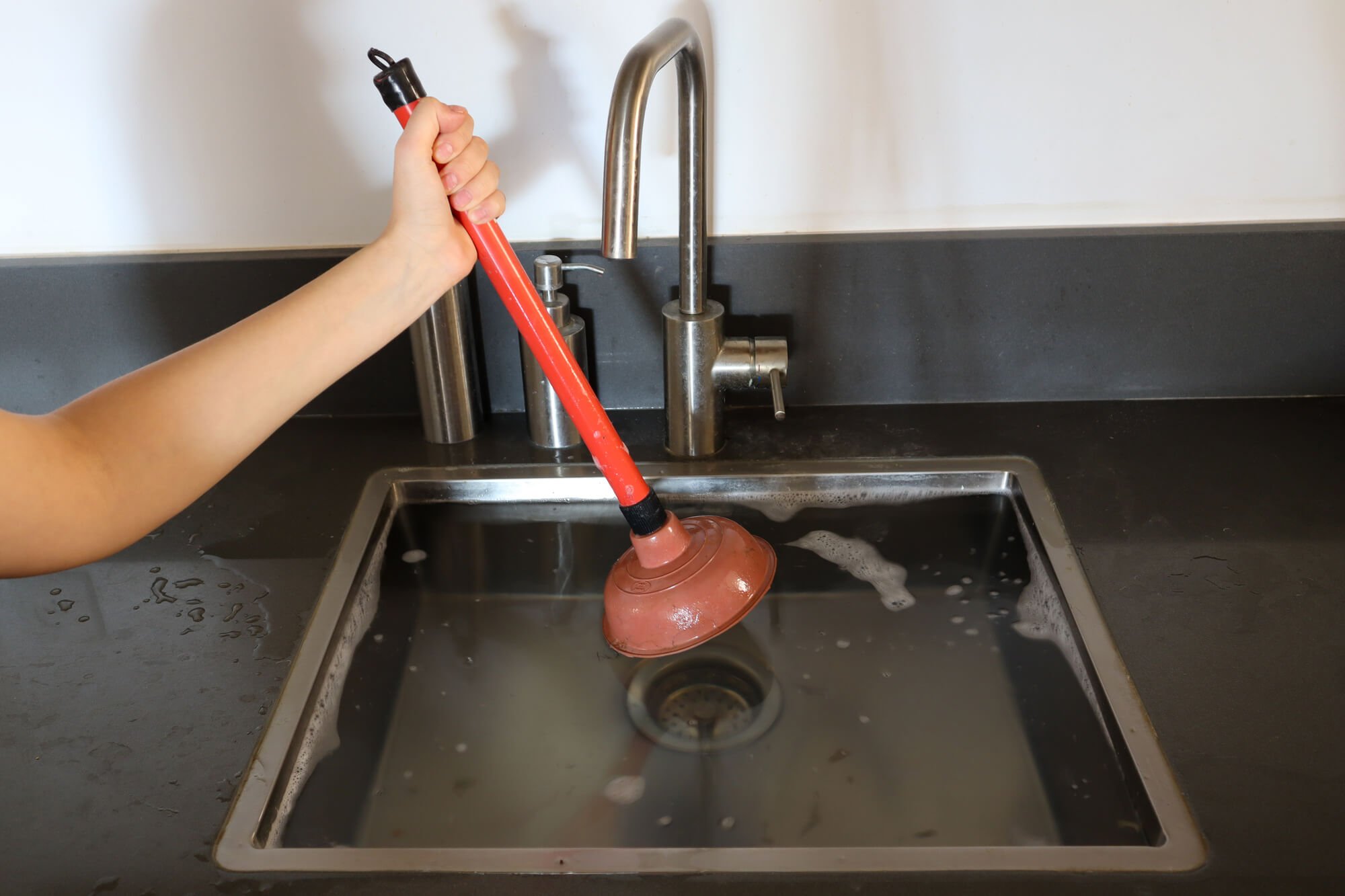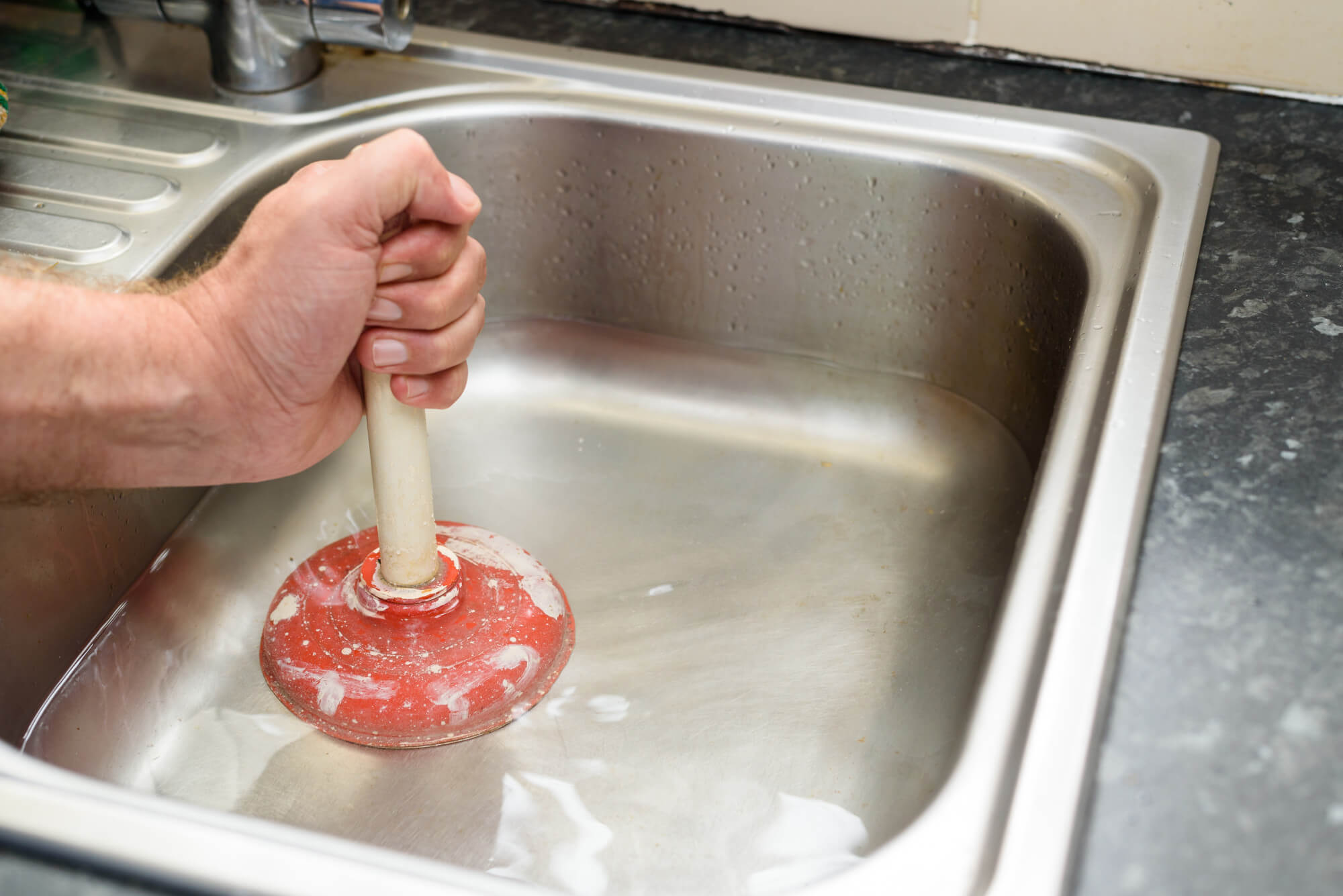The article directly below relating to How to handle a clogged drain in your home is relatively captivating. Give it a go and draw your own results.

Introduction
Taking care of an obstructed drain can be an irritating experience, interfering with everyday tasks and potentially creating damages to your residential property. However, before reaching out to pipes professionals, there are actions you can require to deal with the problem yourself. In this guide, we'll discover DIY options and preventive measures to deal with an obstructed drain successfully.
Determining the Issue
The first step in addressing an obstructed drain is recognizing the indicators. Slow drainage, gurgling sounds, foul odors rising from drains pipes, or water support up are common indications of an obstructed drain. Recognizing these signs early can help prevent additionally problems.
Choosing the Right Pipes Service
When picking a pipes service, consider aspects such as experience, licensing, and consumer reviews. Choose a credible plumber with a track record of quality handiwork and clear pricing practices.
Price Considerations
The price of expert drainpipe cleaning company can vary relying on the intensity of the blockage and the plumbing professional's prices. Demand quotes from multiple suppliers and ask about any surcharges to make sure transparency and stay clear of surprises.
Safety and security Precautions
When attempting do it yourself drain cleaning, prioritize safety and security. Wear protective gloves and eyewear to avoid contact with harmful chemicals or microorganisms. Never ever blend various drainpipe cleaning items, as this can generate unsafe fumes.
Situation Studies
Real-life examples illustrate the efficiency of DIY services and the relevance of prompt expert treatment in settling drainpipe clogs.
Typical Root Causes Of Blocked Drainpipes
Understanding the aspects that contribute to drain obstructions is necessary for efficient resolution. Typical wrongdoers include hair, soap scum, oil, food particles, and foreign objects like sanitary items or paper towels. Tree roots invading below ground pipelines can likewise trigger substantial obstructions.
DIY Solutions
For minor blockages, numerous DIY options can be efficient. Pouring boiling thin down the drain can help liquify grease and debris. Baking soda and vinegar or a mix of salt and baking soft drink can function as all-natural cleansers. Using a plunger or plumbing snake to dislodge blockages is an additional choice.
Devices and Devices
Having the right tools accessible can make DIY drain cleaning up extra reliable. A plunger is a versatile tool for getting rid of obstructions in sinks, toilets, and showers. A pipes snake or auger can get to deeper clogs, while drainpipe cleaning chemicals can be made use of cautiously for persistent blockages.
Safety nets
To prevent future obstructions, embracing preventive measures is vital. Mount drainpipe guards or strainers to catch hair and particles prior to they enter the pipes. Regularly flush drains with hot water to liquify grease accumulation, and stay clear of dealing with oil or solid waste down the tubes.
When to Call an Expert
While do it yourself services can settle minor obstructions, specific indications suggest the requirement for professional help. Consistent obstructions, foul odors in spite of cleaning initiatives, or multiple drains supporting at the same time are red flags that call for skilled intervention.
Verdict
By following the pointers laid out in this guide, you can successfully deal with blocked drains pipes and protect against future plumbing concerns. Whether selecting do it yourself solutions or looking for professional aid, prompt action is key to preserving a healthy plumbing system and preserving the integrity of your home.
10 TIPS TO CLEAR ANY BLOCKED DRAIN
SIGNS OF A BLOCKED DRAIN
Blocked drains can be a source of property damage and health problems for people and pets. The early warning signs of a blocked drain are:
Overflowing
You’re probably quite used to everything flowing down your drain. As a result, it’s quite alarming seeing water spill back up. If your drain is overflowing, that means you’re facing a blockage.
Gurgling sounds
Gurgling sounds indicate that the water is pooling and pushing against the pipe. If you experience this, it’s often the case that a blockage is a problem.
Slow draining
When emptying your sink or taking a shower, you might notice that the water pools for longer than expected. Usually, the problem worsens rather than getting better by itself, which suggests that the blockage is growing larger.
CAUSES OF A BLOCKED DRAIN
Although most people use their drains appropriately, it’s quite easy to make mistakes. Occasionally, everyday use results in blocked drains too. Common causes include:
Tree roots
Tree roots won’t be the cause of local drain blockages, but they can disrupt your main sewage system. The root keeps growing until it breaches the pipe and causes a blockage.
Toiletries
Although toiletries are essential, some can cause drain blockages. For example, nappies, baby wipes and sanitary products should not be flushed down the toilet.
Foreign objects
When you have kids, there’s always a risk they’ll flush something unusual down the toilet. Toys and other foreign objects become lodged in the u-bend, resulting in a blockage.
Mineral Buildup
When minerals such as calcium build up in your pipes, this causes constriction. Although this may not cause a blockage on its own, it does make it easier for other types of blockages to form.
Soap
Although liquid soap may not cause drain blockages, solid soap bars can get lodged within pipes until they eventually break down. One way to stop this from happening is to use a mesh wire guard to cover plug holes.
Natural Debris
Natural debris can fall into your outdoor drains, especially when you don’t use gutter guards. This usually means leaves and twigs, although it can include dirt and grit too.
HOW TO CLEAR A BLOCKED DRAIN
Boiling water
Boiling water is useful for tackling blocked drains caused by grease, conditioner, and some other kinds of toiletries. This is because these substances have a low melting point, and the extreme heat helps to break them up. Boil a kettle with water and pour it down the drain to shift the blockage.
Natural cleaners
You can use some natural cleaners to create a fizzing effect that breaks drain blockages apart. Try pouring hot water down the drain, then follow it with one cup of bicarbonate of soda and a cup of vinegar. Leave it for ten minutes, then chase it with more hot water. A combination of the hot water and the natural cleaner mixture can break blockages up.
Caustic cleaners
Some stores sell caustic cleaners that take stronger action against drain blockages. It dissolves grease, fat, and oils, making it ideal for tougher blockages. Always follow the instructions on the packaging and ventilate the room before starting.
Plungers
As a simple yet effective tool, plungers can help to dislodge local blockages. They work by forming a seal around the plug hole, followed by a vacuum effect that removes the blockage.
DIY drain snake
You can make a DIY drain snake out of any thin metal wire, such as a coat hanger. Leave a hook at the end of the snake and insert it into the plughole. Try using it to fish out local blockages made of hair. This approach is most effective in showers.
https://preciseservices.com.au/10-tips-to-clear-any-blocked-drain/

I am just very occupied with How to handle a clogged drain in your home and I really hope you enjoyed the entire post. If you liked our post kindly be sure to pass it around. Thanks a bunch for your time. Return soon.
Request Free Estimate